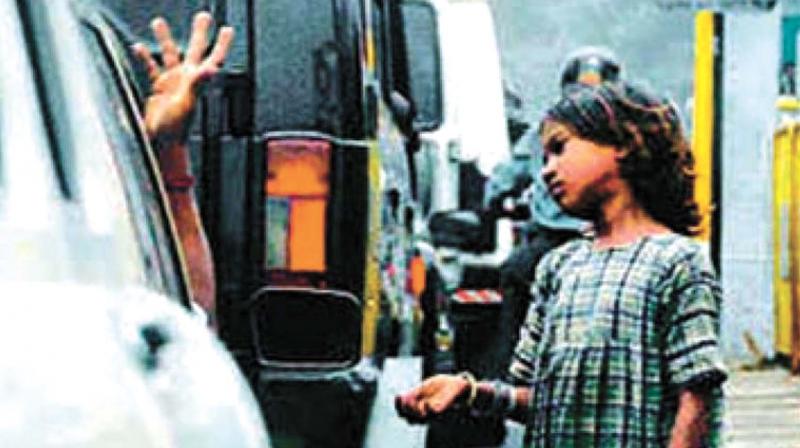Kerala: Bill for humane' curb on begging
The draft law proposes the setting up of 'relief centres' and 'work houses' for the rehabilitation of mendicants.

THIRUVANANTHAPURAM: A new law to ban begging in the state is on the anvil but marking a radical shift in jurisprudence, the draft law will approach the phenomenon of begging in a humane manner. While the obsolete pre-1957 laws consider begging to be a crime deserving a long jail sentence, the thrust of the proposed law will be on protection and rehabilitation. The draft law, which is being drawn up and is called the Draft Bill on Prevention of Begging and Protection of Destitute Beggars, grants police the authority to arrest or take into custody without warrant any person involved in taking alms from the public.
It describes 'alms' as anything gratuitously given to a beggar such as money, cooked food, uncooked grain or anything of value. It states that persons found begging, except juveniles or a destitute beggar, should be produced before the court in 24 hours. It describes 'destitute beggar' as someone without a home or settled place and lacking the means to provide oneself due to extreme poverty or infirmity or deformity. However, instead of incarcerating beggars as stated in earlier laws like Travancore Prevention of Begging Act or the Kochi Vagrancy Act, the proposed Bill moots a rehabilitation scheme for beggars.
"There is a global consensus on treating beggars with understanding. We have to take into account the economic reasons behind the phenomenon," a top Social Justice official said. The Draft law, the source said, proposes the setting up of 'relief centres' and 'work houses' for the rehabilitation of mendicants. Those incapable of manual labour will be put in 'relief centres' where education and vocational training will be given. Able-bodied persons will be lodged in 'work centres', where too education and vocational training will be imparted. None will be kept in these centres for more than a month. But if a person is caught a second time, he or she will be put in the centre for a maximum of three years.

